Politics
Qatar bombing tests the limits of Trump-Netanyahu alliance
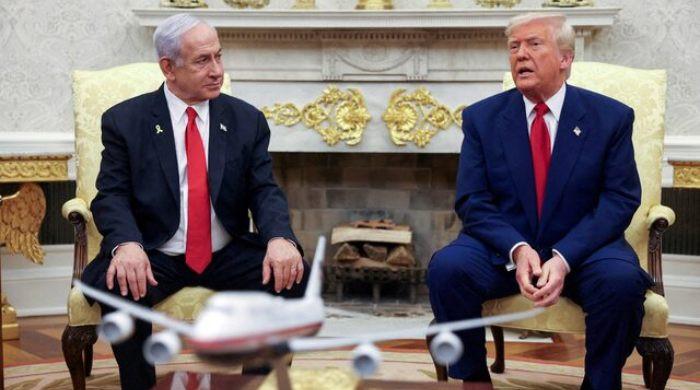
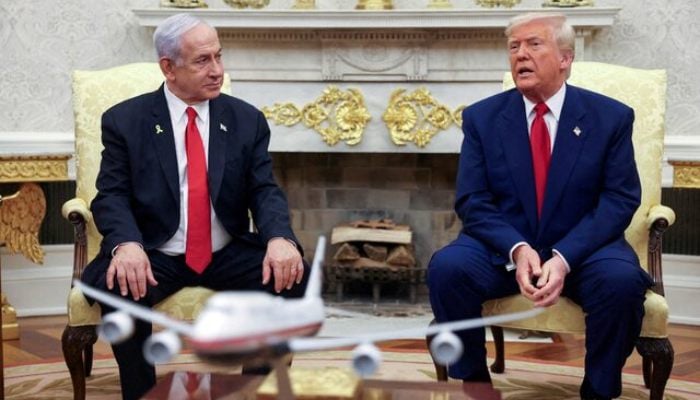
- Trump again annoyed at Netanyahu, but rupture unlikely.
- Analysts see Trump’s support for Israel despite disagreements.
- Israel kept Washington in dark about Qatar strikes, officials say.
WASHINGTON: Less than four months ago, President Donald Trump met with the leader of Qatar, praising his opulent palace and signing a sweeping defence agreement with the Gulf monarchy, a key ally that hosts the biggest US base in the Middle East.
Israel’s surprise attack on Tuesday against Hamas leaders in Doha has jolted that relationship, angering Trump and drawing fierce condemnation from Doha and Western allies.
Ordered by Israeli Prime Minister Benjamin Netanyahu and targeting the political offices of the Palestinian group, the strikes killed a Qatari security agent and five others, but failed to kill the Hamas leaders. Trump said he was “very unhappy about every aspect” of the Israeli operation.
But for all the indignation, the strikes are unlikely to change the president’s fundamental approach toward Israel, analysts and US officials say. If anything, the bombings underlined the cold calculus beneath the Trump-Netanyahu relationship.
Israel has shown it is not afraid to act against US interests. The administration of Prime Minister Benjamin Netanyahu did not formally warn Washington of its impending bombing campaign on Tuesday, US officials said.
That lack of warning recalled Israel’s September 2024 attack on Hezbollah, when Israel wounded thousands of the group’s members with booby-trapped pagers, without informing then-President Joe Biden.
Trump, for his part, has occasionally expressed displeasure with Netanyahu. But his administration has strongly supported Israel’s campaign to weaken Hamas and allowed it to largely take the lead on key issues such as Iran’s nuclear program.
“On this one, I think Trump is annoyed by Netanyahu’s tactics,” said Aaron David Miller, a senior fellow at the Carnegie Endowment for International Peace and veteran US peace negotiator.
But, Miller added, “(Trump’s) instinct is that he agrees with Netanyahu’s notion that Hamas cannot just be hollowed out as a military organisation. It needs to be fundamentally weakened.”
Asked for comment, the White House referred Reuters to remarks by Trump on Truth Social on Tuesday night, during which he said the bombings did not advance US or Israeli interests.
“However,” Trump wrote, “eliminating Hamas, who have profited off the misery of those living in Gaza, is a worthy goal.”
The Israeli Embassy in Washington did not respond to a request for comment.
No rupture likely
Some analysts declined to rule out the possibility that Netanyahu may yet exhaust Trump’s patience if he springs more surprises on Washington.
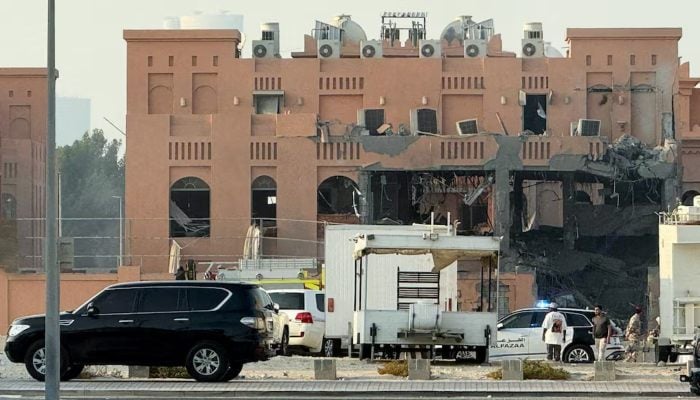
In practice, that could mean a withdrawal of political cover for Israel’s ongoing invasion of Gaza, which has provoked outrage among European and Arab nations as famine conditions spread.
Israel’s military campaign in the Palestinian enclave was triggered by a Hamas-led rampage in southern Israel on Oct. 7, 2023.
“As his Arab friends complain to him about what Israel is doing — and they are doing so now — he may say to them give me a credible plan for the day after in Gaza and with an alternative to Hamas running it and I will tell Bibi you have done enough,” said Dennis Ross, a former Middle East negotiator for Democratic and Republican administrations.
Israel’s strike in Doha will likely dampen Trump’s hopes for more Gulf states joining the Abraham Accords, a landmark agreement brokered by his first administration in which several Arab countries forged diplomatic ties with Israel.
Still, a rupture between the two men seems unlikely, argued Michael Oren, Israel’s former ambassador to the United States, saying that Trump appreciates strength and transactions that end wars.
“If Netanyahu can continue to appeal to those two sides of this president then he will be okay. I’m not concerned about the relationship,” said Oren.
Hot and cold
The Trump-Netanyahu partnership has seen ups and downs, administration officials acknowledge.
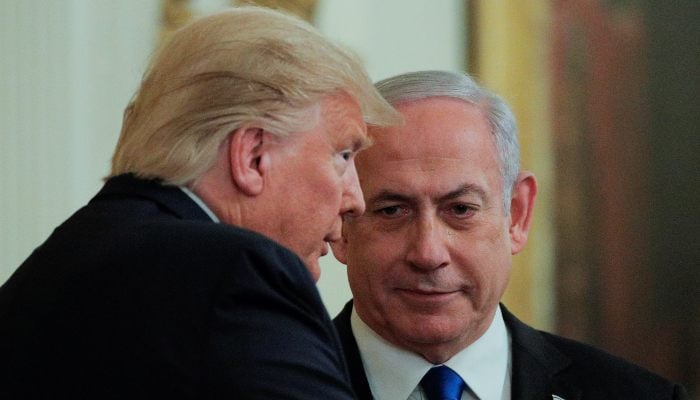
“It’s been hot and cold since the campaign,” said one senior White House official.
In May, Trump travelled to Saudi Arabia, Qatar and the United Arab Emirates during his first major foreign trip, skipping Israel, which many analysts viewed as a snub. The Republican president returned to office in January promising to reinvigorate relations with Netanyahu that had deteriorated under his Democratic predecessor.
During that trip, Trump agreed to lift sanctions on the new Syrian government at the behest of Saudi Crown Prince Mohammed bin Salman. That move alarmed Israeli officials who question the motives of Syrian President Ahmed al-Sharaa, a former al-Qaeda commander.
But just a month later, the Trump-Netanyahu alliance seemed back on track. After Israel launched an air war on Iran in June, Trump — who campaigned on ending foreign conflicts — surprised even some of his own political allies by sending B-2 bombers to partially destroy Iran’s key nuclear facilities.
If that created goodwill within the Netanyahu administration, it did not benefit Trump’s foreign policy interests, at least in the short term.
Days later, Trump profanely chastised Iran and Israel for breaking a US-brokered ceasefire. In July, the US appeared to criticise an Israeli strike in Damascus, which destroyed part of Syria’s defence ministry. And on Tuesday, Israel notified the US shortly before the Qatar strike, but there was no coordination with or approval from Washington, two US officials said.
“The US can seek to cajole and push Israel to take decisions,” said Jonathan Panikoff, a former deputy US national intelligence officer on the Middle East. “But Netanyahu will continue to act in a manner that it views as in the best interests of Israel alone.”
Politics
Higher US tariffs on imported furniture


Steeper US tariffs on some imported furniture items took effect Thursday, in a move that could add pressure on households already feeling the pinch from elevated costs of living.
The increase was planned under an earlier tranche of sector-specific tariffs imposed by President Donald Trump, as the US leader widened a slate of duties he has rolled out since returning to the White House.
Trump’s tariffs in 2025 have affected goods ranging from steel to autos, and more investigations — that could lead to even more levies — are underway.
In October, a 10-percent duty on imported softwood timber and lumber came into effect, along with a 25-percent duty on certain upholstered furniture and kitchen cabinets.
These tariffs, justified by the Trump administration as a means to boost US industries and protect national security, also included a planned increase come January 1, 2026.
Effective Thursday, the rate on certain upholstered furniture rises to 30 percent, while that on kitchen cabinets and vanities doubles to 50 percent.
The measure is likely to impact imports from countries like Vietnam and China, which have been key suppliers of imported furniture to the United States.
But the tariff levels for wood products from Britain will not exceed 10 percent, while those from the European Union and certain other trading partners who reached deals with Washington face a 15-percent ceiling.
Products subject to sector-specific tariffs are also not doubly hit by countrywide “reciprocal” levies that Trump has separately imposed, which are in some cases higher.
The Supreme Court is due to rule on the legality of these countrywide tariffs, imposed under the International Emergency Economic Powers Act.
But the high court’s eventual decision does not affect sector-specific duties.
Politics
Several dead in explosion at Swiss ski resort town Crans Montana


GENEVA: Several people were killed and others injured when an explosion ripped through a bar in the luxury Alpine ski resort town of Crans Montana, Swiss police said early Thursday.
“There has been an explosion of unknown origin,” Gaetan Lathion, a police spokesman in Wallis canton in southwestern Switzerland told AFP.
“There are several injured, and several dead.”
He said the explosion took place at around 1:30am (0030 GMT) in a bar called Le Constellation, which is popular with tourists, as revellers rang in the new year.
Images published by Swiss media showed a building in flames, and emergency services nearby.
“The intervention is still ongoing,” he said.
This is a developing story and is being updated with further details.
Politics
Zohran Mamdani takes oath as Mayor of New York
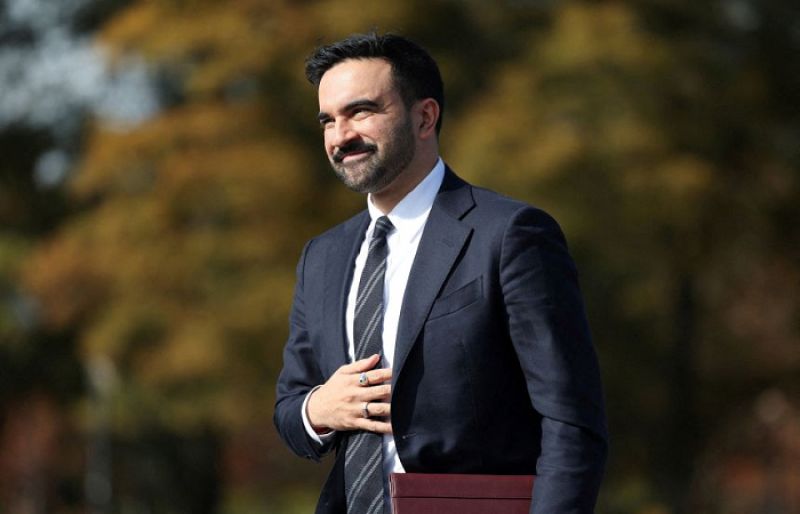

Zohran Mamdani, the young upstart of the US left, was sworn in Thursday to take over as New York mayor for a term sure to see him cross swords with President Donald Trump.
After the clocks struck midnight, bringing in 2026, Mamdani took his oath of office at an abandoned subway stop to begin managing the United States’ largest city. He is New York’s first Muslim mayor.
His office said the understated venue beneath City Hall reflected his commitment to working people, after the 34-year-old Democrat campaigned on promises to address the soaring cost of living.
“This is truly the honor and the privilege of a lifetime,” Mamdani told reporters after taking his oath.
But it remains to be seen if Mamdani — virtually unknown a year ago — can deliver on his ambitious agenda, which envisions rent freezes, universal childcare and free public buses.
Once an election is over, “symbolism only goes so far with voters. Results begin to matter a whole lot more,” New York University lecturer John Kane said.
How Trump behaves could be a decisive factor.
The Republican, himself a New Yorker, has repeatedly criticized Mamdani, but the pair held surprisingly cordial talks at the White House in November.
Lincoln Mitchell, a political analyst and professor at Columbia University, said the meeting “couldn’t have gone better from Mamdani’s perspective.”
But he warned their relationship could quickly sour.
One flashpoint might be immigration raids as Trump wages an expanding crackdown on migrants across the United States.
Mamdani has vowed to protect immigrant communities.
Before the November vote, the president also threatened to slash federal funding for New York if it picked Mamdani, whom he called a “communist lunatic.”
The mayor-elect has said he believes Trump is a fascist.
Block party
Mamdani’s private swearing-in to start his four-year term was performed by New York Attorney General Letitia James, who successfully prosecuted Trump for fraud.
A larger, ceremonial inauguration is scheduled later Thursday with speeches from left-wing allies Senator Bernie Sanders and Congresswoman Alexandria Ocasio-Cortez.
Around 4,000 ticketed guests are expected to attend the event outside City Hall.
Mamdani’s team has also organized a block party that it says will enable tens of thousands of people to watch the ceremony at streetside viewing areas along Broadway.
In a first for the city, Mamdani is using several Korans to be sworn in as mayor — two from his family and one that belonged to Puerto Rico-born Black writer Arturo Schomburg, The New York Times reported.
The new job comes with a change of address as he swaps his rent-controlled apartment in the borough of Queens for the luxurious mayor’s residence in Manhattan.
Some had wondered if he would move to the official mansion given his campaigning on affordability issues. Mamdani said he is doing so mainly for security reasons.
Born in Uganda to a family of Indian origin, Mamdani moved to New York at age seven and enjoyed an elite upbringing with only a relatively brief stint in politics, becoming a member of the New York State Assembly before being elected mayor.
Compensating for his inexperience, he is surrounding himself with seasoned aides recruited from past mayoral administrations and former US president Joe Biden’s government.
Mamdani has also opened dialogue with business leaders, some of whom predicted a massive exodus of wealthy New Yorkers if he won. Real estate leaders have debunked those claims.
As a defender of Palestinian rights, he will have to reassure the Jewish community of his inclusive leadership.
Recently, one of his hires resigned after it was revealed she had posted antisemitic tweets years ago.
-

 Sports5 days ago
Sports5 days agoBrooks Koepka should face penalty if he rejoins PGA Tour, golf pundit says
-

 Business6 days ago
Business6 days agoGovt registers 144olive startups | The Express Tribune
-
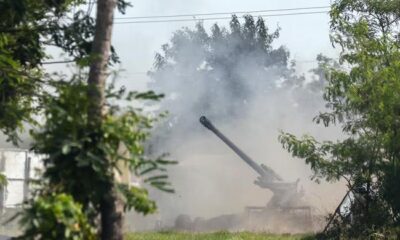
 Politics5 days ago
Politics5 days agoThailand, Cambodia agree to ‘immediate’ ceasefire: joint statement
-

 Entertainment5 days ago
Entertainment5 days agoSecond actor accuses Tyler Perry of sexual assault in new lawsuit
-
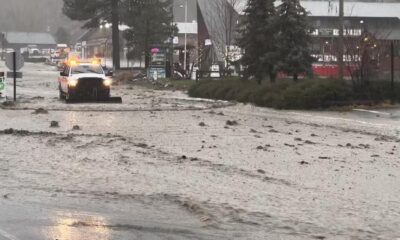
 Politics5 days ago
Politics5 days agoHeavy rains, flash floods leave Southern California homes caked in mud
-

 Fashion5 days ago
Fashion5 days agoClimate change may hit RMG export earnings of 4 nations by 2030: Study
-

 Entertainment6 days ago
Entertainment6 days agoInside royal families most private Christmas moments
-

 Fashion6 days ago
Fashion6 days agoArea CG’s Fernando Rius says luxury is not about buying something expensive, it is about understanding the culture, history, and time invested






